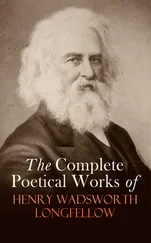Henry Fielding - Amelia – Complete
Здесь есть возможность читать онлайн «Henry Fielding - Amelia – Complete» — ознакомительный отрывок электронной книги совершенно бесплатно, а после прочтения отрывка купить полную версию. В некоторых случаях можно слушать аудио, скачать через торрент в формате fb2 и присутствует краткое содержание. Жанр: foreign_prose, foreign_antique, на английском языке. Описание произведения, (предисловие) а так же отзывы посетителей доступны на портале библиотеки ЛибКат.
- Название:Amelia – Complete
- Автор:
- Жанр:
- Год:неизвестен
- ISBN:нет данных
- Рейтинг книги:4 / 5. Голосов: 1
-
Избранное:Добавить в избранное
- Отзывы:
-
Ваша оценка:
- 80
- 1
- 2
- 3
- 4
- 5
Amelia – Complete: краткое содержание, описание и аннотация
Предлагаем к чтению аннотацию, описание, краткое содержание или предисловие (зависит от того, что написал сам автор книги «Amelia – Complete»). Если вы не нашли необходимую информацию о книге — напишите в комментариях, мы постараемся отыскать её.
Amelia – Complete — читать онлайн ознакомительный отрывок
Ниже представлен текст книги, разбитый по страницам. Система сохранения места последней прочитанной страницы, позволяет с удобством читать онлайн бесплатно книгу «Amelia – Complete», без необходимости каждый раз заново искать на чём Вы остановились. Поставьте закладку, и сможете в любой момент перейти на страницу, на которой закончили чтение.
Интервал:
Закладка:
‘ — Leve fit quod bene fertur onus .’ 8 8 The burthen becomes light by being well borne.
“And though I must confess I never thought Aristotle (whom I do not take for so great a blockhead as some who have never read him) doth not very well resolve the doubt which he hath raised in his Ethics, viz., How a man in the midst of King Priam’s misfortunes can be called happy? yet I have long thought that there is no calamity so great that a Christian philosopher may not reasonably laugh at it; if the heathen Cicero, doubting of immortality (for so wise a man must have doubted of that which had such slender arguments to support it), could assert it as the office of wisdom, Humanas res despicere atque infra se positas arbitrari. 9 9 To look down on all human affairs as matters below his consideration.
“Which passage, with much more to the same purpose, you will find in the third book of his Tusculan Questions.
“With how much greater confidence may a good Christian despise, and even deride, all temporary and short transitory evils! If the poor wretch, who is trudging on to his miserable cottage, can laugh at the storms and tempests, the rain and whirlwinds, which surround him, while his richest hope is only that of rest; how much more chearfully must a man pass through such transient evils, whose spirits are buoyed up with the certain expectation of finding a noble palace and the most sumptuous entertainment ready to receive him! I do not much like the simile; but I cannot think of a better. And yet, inadequate as the simile is, we may, I think, from the actions of mankind, conclude that they will consider it as much too strong; for, in the case I have put of the entertainment, is there any man so tender or poor-spirited as not to despise, and often to deride, the fiercest of these inclemencies which I have mentioned? but in our journey to the glorious mansions of everlasting bliss, how severely is every little rub, every trifling accident, lamented! and if Fortune showers down any of her heavier storms upon us, how wretched do we presently appear to ourselves and to others! The reason of this can be no other than that we are not in earnest in our faith; at the best, we think with too little attention on this our great concern. While the most paultry matters of this world, even those pitiful trifles, those childish gewgaws, riches and honours, are transacted with the utmost earnestness and most serious application, the grand and weighty affair of immortality is postponed and disregarded, nor ever brought into the least competition with our affairs here. If one of my cloth should begin a discourse of heaven in the scenes of business or pleasure; in the court of requests, at Garraway’s, or at White’s; would he gain a hearing, unless, perhaps, of some sorry jester who would desire to ridicule him? would he not presently acquire the name of the mad parson, and be thought by all men worthy of Bedlam? or would he not be treated as the Romans treated their Aretalogi, 10 10 A set of beggarly philosophers who diverted great men at their table with burlesque discourses on virtue.
and considered in the light of a buffoon? But why should I mention those places of hurry and worldly pursuit? What attention do we engage even in the pulpit? Here, if a sermon be prolonged a little beyond the usual hour, doth it not set half the audience asleep? as I question not I have by this time both my children. Well, then, like a good-natured surgeon, who prepares his patient for a painful operation by endeavouring as much as he can to deaden his sensation, I will now communicate to you, in your slumbering condition, the news with which I threatened you. Your good mother, you are to know, is dead at last, and hath left her whole fortune to her elder daughter. – This is all the ill news I have to tell you. Confess now, if you are awake, did you not expect it was much worse; did not you apprehend that your charming child was dead? Far from it, he is in perfect health, and the admiration of everybody: what is more, he will be taken care of, with the tenderness of a parent, till your return. What pleasure must this give you! if indeed anything can add to the happiness of a married couple who are extremely and deservedly fond of each other, and, as you write me, in perfect health. A superstitious heathen would have dreaded the malice of Nemesis in your situation; but as I am a Christian, I shall venture to add another circumstance to your felicity, by assuring you that you have, besides your wife, a faithful and zealous friend. Do not, therefore, my dear children, fall into that fault which the excellent Thucydides observes is too common in human nature, to bear heavily the being deprived of the smaller good, without conceiving, at the same time, any gratitude for the much greater blessings which we are suffered to enjoy. I have only farther to tell you, my son, that, when you call at Mr. Morand’s, Rue Dauphine, you will find yourself worth a hundred pounds. Good Heaven! how much richer are you than millions of people who are in want of nothing! farewel, and know me for your sincere and affectionate friend.”
“There, madam,” cries Booth, “how do you like the letter?”
“Oh! extremely,” answered she: “the doctor is a charming man; I always loved dearly to hear him preach. I remember to have heard of Mrs. Harris’s death above a year before I left the country, but never knew the particulars of her will before. I am extremely sorry for it, upon my honour.”
“Oh, fy! madam,” cries Booth; “have you so soon forgot the chief purport of the doctor’s letter?”
“Ay, ay,” cried she; “these are very pretty things to read, I acknowledge; but the loss of fortune is a serious matter; and I am sure a man of Mr. Booth’s understanding must think so.” “One consideration, I must own, madam,” answered he, “a good deal baffled all the doctor’s arguments. This was the concern for my little growing family, who must one day feel the loss; nor was I so easy upon Amelia’s account as upon my own, though she herself put on the utmost chearfulness, and stretched her invention to the utmost to comfort me. But sure, madam, there is something in the doctor’s letter to admire beyond the philosophy of it; what think you of that easy, generous, friendly manner, in which he sent me the hundred pounds?”
“Very noble and great indeed,” replied she. “But pray go on with your story; for I long to hear the whole.”
Chapter xi. – In which Mr. Booth relates his return to England
“Nothing remarkable, as I remember, happened during our stay at Paris, which we left soon after and came to London. Here we rested only two days, and then, taking leave of our fellow-travellers, we set out for Wiltshire, my wife being so impatient to see the child which she had left behind her, that the child she carried with her was almost killed with the fatigue of the journey.
“We arrived at our inn late in the evening. Amelia, though she had no great reason to be pleased with any part of her sister’s behaviour, resolved to behave to her as if nothing wrong had ever happened. She therefore sent a kind note to her the moment of our arrival, giving her her option, whether she would come to us at the inn, or whether we should that evening wait on her. The servant, after waiting an hour, brought us an answer, excusing her from coming to us so late, as she was disordered with a cold, and desiring my wife by no means to think of venturing out after the fatigue of her journey; saying, she would, on that account, defer the great pleasure of seeing her till the morning, without taking any more notice of your humble servant than if no such person had been in the world, though I had very civilly sent my compliments to her. I should not mention this trifle, if it was not to shew you the nature of the woman, and that it will be a kind of key to her future conduct.
Читать дальшеИнтервал:
Закладка:
Похожие книги на «Amelia – Complete»
Представляем Вашему вниманию похожие книги на «Amelia – Complete» списком для выбора. Мы отобрали схожую по названию и смыслу литературу в надежде предоставить читателям больше вариантов отыскать новые, интересные, ещё непрочитанные произведения.
Обсуждение, отзывы о книге «Amelia – Complete» и просто собственные мнения читателей. Оставьте ваши комментарии, напишите, что Вы думаете о произведении, его смысле или главных героях. Укажите что конкретно понравилось, а что нет, и почему Вы так считаете.












